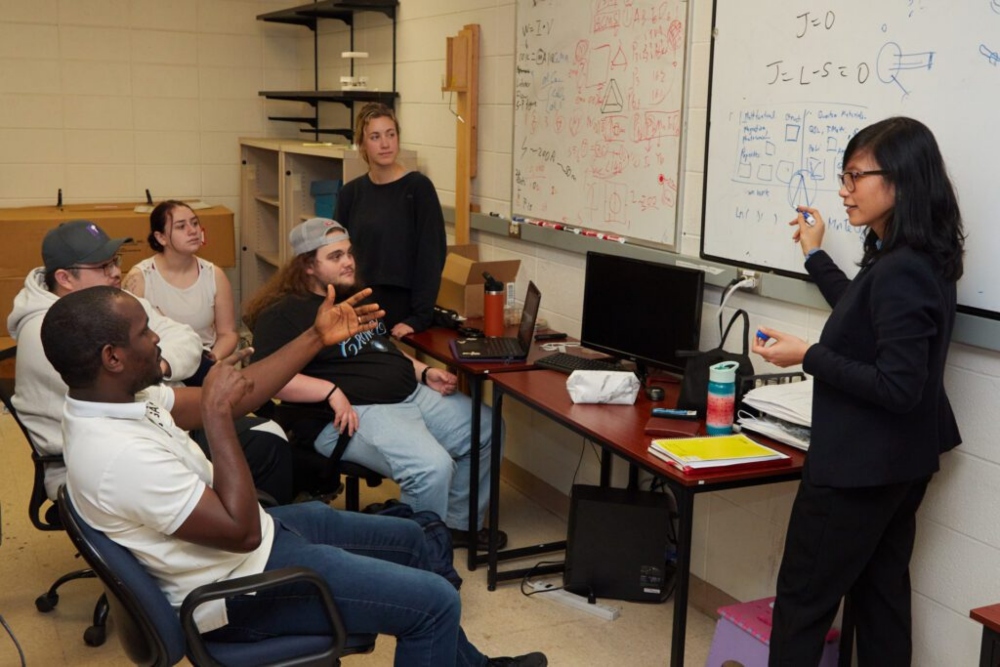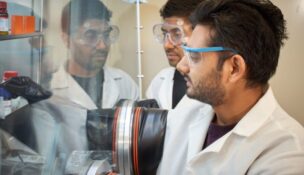Clemson chemistry professor awarded for work in quantum tech
Ross Norton //July 12, 2023//
 An assistant professor of chemistry at Clemson University, has received a prestigious 2023 Beckman Young Investigators Award from the Arnold and Mabel Beckman Foundation to support her research in quantum technology.
An assistant professor of chemistry at Clemson University, has received a prestigious 2023 Beckman Young Investigators Award from the Arnold and Mabel Beckman Foundation to support her research in quantum technology.
Thao Tran is one of 11 researchers from across the United States selected from a pool of nearly 200 applicants after a three-part review led by a panel of scientific experts, according to a university news release. She is the first recipient from Clemson University and the first from a college or university in South Carolina.
“I am truly honored to receive the award and have the research program we have built recognized at the national level by the Arnold and Mabel Beckman Foundation,” Tran said in the news release. “It is encouraging to have such a prestigious organization recognize that we are emphasizing sound scientific practices and impactful research.”
The Beckman Young Investigators Program supports the country’s most promising young faculty members in the early stages of their academic careers in the chemical and life sciences, particularly to foster the invention of methods, instruments and materials that will open new avenues of research in science, according to the organization’s website.
Tran will receive $600,000 over four years. She will use the grant for her project, “A New Chemical Approach to Quantum Technologies,” the release said.
Quantum computers could revolutionize the future of science and technology by using the strange principles of sub-atomic particles to solve complex problems that are beyond the reach of even the best classical computers, the release said. Unlike conventional computers that store information in binary form (1s and 0s), quantum computers store information in multiple forms known as qubits. By leveraging two key phenomena — quantum superposition and entanglement — quantum computers can explore multiple solution pathways simultaneously.
But qubits are fragile and their state is susceptible to perturbations such as environment, defects and room-temperature operations, the release said. Those perturbations can cause errors.
“The challenge is how do you retain quantum effects at a macroscopic scale in real material?” she said.
In this project, using the chemical attributes of precision, tunability and reproducibility, Tran’s lab will work to create new materials that can potentially retain quantum effects at a macroscopic scale that is protected from perturbations.
“We want to understand the chemistry and property relationship in quantum materials. Only if we understand the fundamental underlying reasons behind why the materials behave the way they do, can we control them better,” she said in the release. “If we can harness the potential of quantum materials by tuning their structure and behavior, we can help advance quantum technology.”
“Professor Tran and her students are at the forefront of the emerging fields of quantum and multifunctional materials,” Department of Chemistry Chair William Pennington said in the release. “She has made significant contributions to these areas by the design and development of novel inorganic materials with interesting optical, magnetic and electronic properties. Her elegant work has been very effective in solving fundamental challenges in the application of these high-value materials to energy research and in quantum information science.”
s















